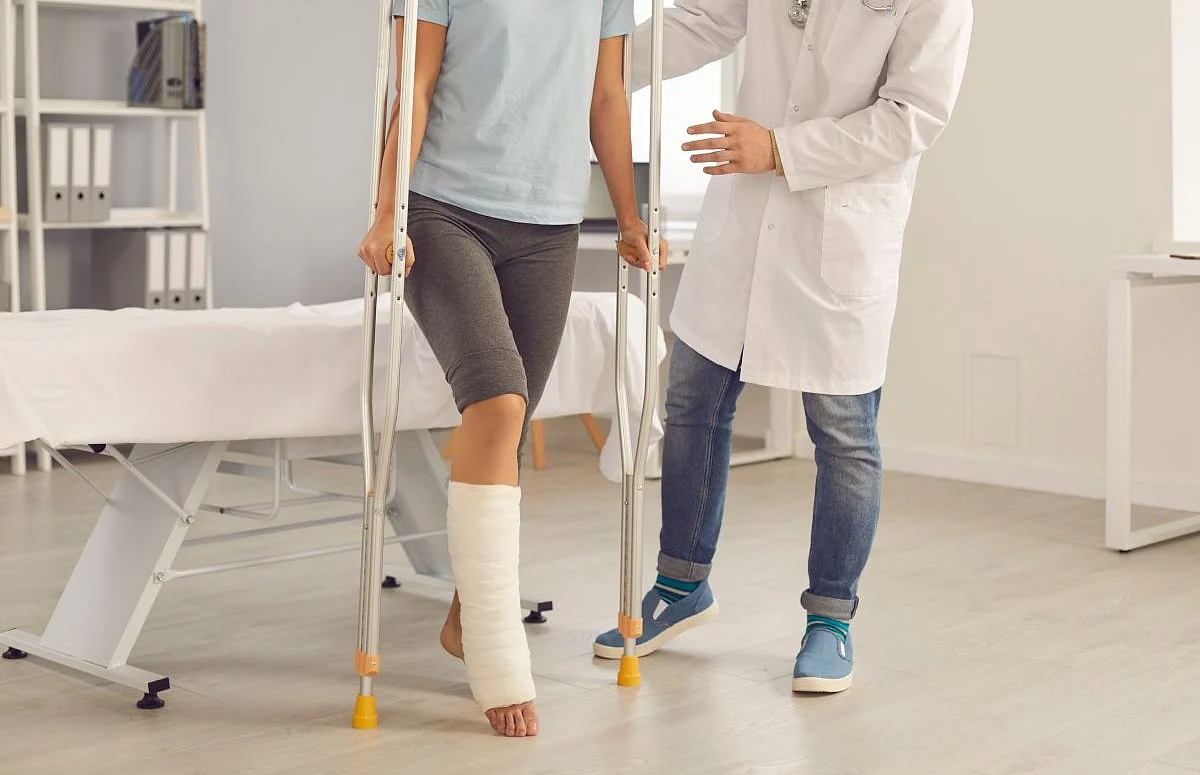Stopping Menopausal Hormone Therapy May Temporarily Increase Fracture Risk
WEDNESDAY, July 30, 2025 -- Stopping menopausal hormone therapy initially leads to several years of elevated fracture risk; however, this risk then decreases, first becoming similar to and eventually lower than the risk in women who have never used hormone therapy, according to a study published online July 23 in The Lancet Healthy Longevity.
Yana Vinogradova, Ph.D., from the University of Nottingham School of Medicine in the United Kingdom, and colleagues conducted a nested case-control study using U.K. primary and secondary care data from the Clinical Practice Research Datalink to estimate fracture risk among past users of menopausal hormone therapy. Women aged 40 years and older with a first record for any fracture were matched at the fracture index date with up to five female controls with no fracture history (648,747 and 2,357,125 women, respectively).
Overall, 21.6 percent of cases and 21.9 percent of controls used menopausal hormone therapy for a median of 3.6 and 3.9 years, respectively. The researchers found that overall fracture risk was reduced for current use versus never use (odds ratios [95 percent confidence intervals], 0.76 [0.74 to 0.78] and 0.75 [0.73 to 0.76] for estrogen-only and estrogen-progestogen, respectively), then became higher at one to 10 years after discontinuation (odds ratios [95 percent confidence intervals], 0.99 [0.98 to 1.01] and 1.06 [1.05 to 1.08], respectively), and was lower again for more than 10 years after cessation (odds ratios [95 percent confidence intervals], 0.93 [0.91 to 0.94] and 0.95 [0.94 to 0.96], respectively). There was variation in risk levels by menopausal hormone therapy type and treatment duration.
"Our comparative illustration of observed patterns of fracture risk for short and long use can help doctors and patients when discussing menopausal hormone therapy treatment options, and to consider how fracture risk may change after stopping menopausal hormone therapy use," Vinogradova said in a statement.
Disclaimer: Statistical data in medical articles provide general trends and do not pertain to individuals. Individual factors can vary greatly. Always seek personalized medical advice for individual healthcare decisions.
© 2025 HealthDay. All rights reserved.
Read this next
Elinzanetant Safe, Effective for Moderate-to-Severe Vasomotor Symptoms
TUESDAY, Sept. 30, 2025 -- Elinzanetant, a dual neurokinin-targeted therapy, is effective for treating menopause-associated moderate-to-severe vasomotor symptoms (VMS), according...
Wrist Cooling May Help Manage Vasomotor Symptoms
WEDNESDAY, Sept. 24, 2025 -- Targeted wrist cooling may offer a safe approach for managing vasomotor symptoms, according to a study published online Sept. 20 in Endocrinology...
Age at Start of Estrogen Therapy May Affect Alzheimer Disease Risk
WEDNESDAY, Sept. 24, 2025 -- Estrogen therapy may reduce Alzheimer disease (AD) risk, with lower risk seen in association with early initiation, according to a study presented at...
More news resources
- FDA Medwatch Drug Alerts
- Daily MedNews
- News for Health Professionals
- New Drug Approvals
- New Drug Applications
- Drug Shortages
- Clinical Trial Results
- Generic Drug Approvals
Subscribe to our newsletter
Whatever your topic of interest, subscribe to our newsletters to get the best of Drugs.com in your inbox.


